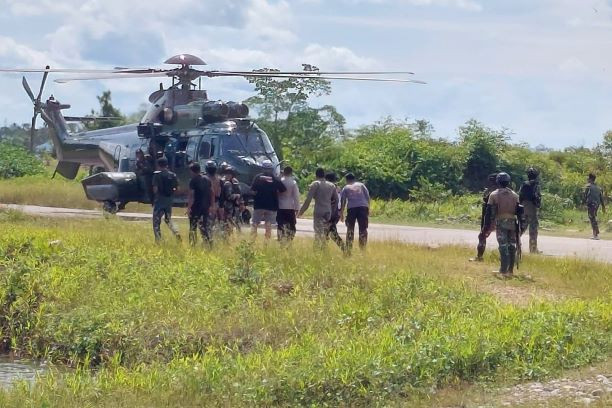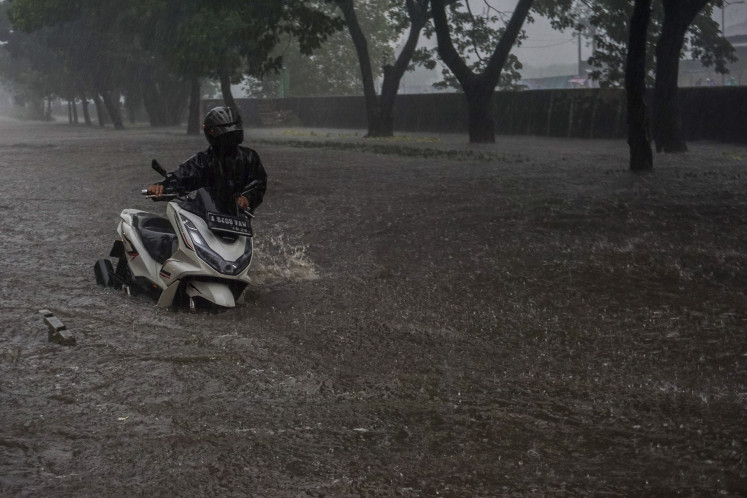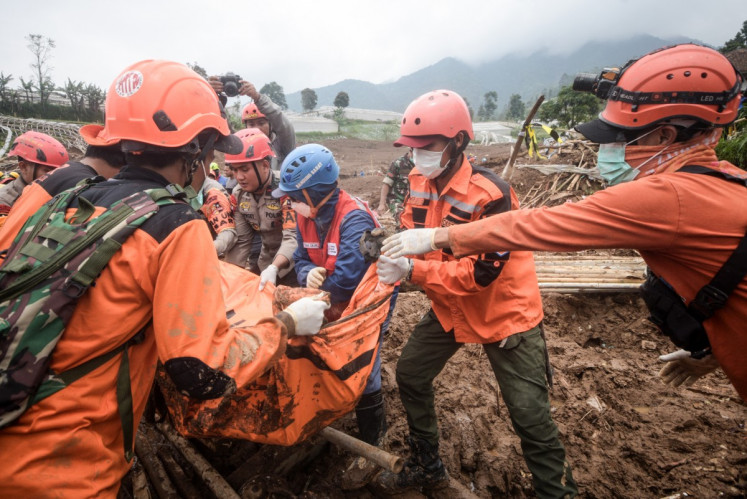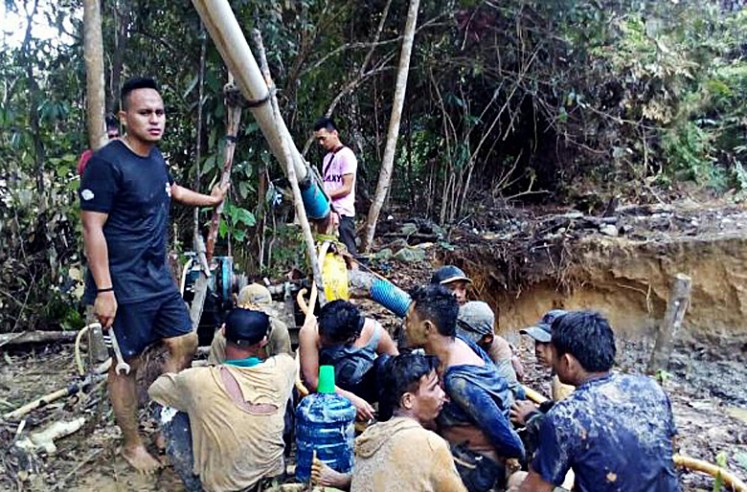Popular Reads
Top Results
Can't find what you're looking for?
View all search resultsPopular Reads
Top Results
Can't find what you're looking for?
View all search resultsSri Mulyani makes first frontline visit to Papua
A Defense Ministry spokesperson said the visit marked “the first time a finance minister had visited a high-risk conflict zone in Nduga,” state news agency Antara reported.
Change text size
Gift Premium Articles
to Anyone
F
inance Minister Sri Mulyani Indrawati made her first-ever visit to a conflict-prone area of Papua over the weekend, joining Defense Minister Sjafrie Sjamsoeddin in inspecting Indonesian Military (TNI) troops stationed in Nduga regency, one of the country’s most volatile security zones.
Saturday’s working visit took the ministers from Timika to Kenyam district, where they inspected an outpost of the Army's 733rd Infantry Battalion/Masariku, a unit operating in one of Papua's most volatile areas. The delegation wore bulletproof vests during the trip, which the ministry described as occurring in a "high-risk" zone.
Defense Ministry spokesperson Brig. Gen. Frega Ferdinand Wenas Inkiriwang said the visit marked “the first time a finance minister had visited a high-risk conflict zone in Nduga,” state news agency Antara reported.
The visit comes as the Defense Ministry seeks to bolster its state budget allocation for 2026, with an indicative ceiling of Rp 167.4 trillion (US$10.27 billion), up from the Rp 155.9 trillion allocated for this year. The ministry is hoping to increase spending on defense modernization, soldier welfare and operations in frontier regions like Papua, where military presence has fluctuated in response to separatist violence.
During the visit, the ministers received a situation briefing from Lt. Gen. Bambang Trisnohadi, commander of the Joint Regional Defense Command (Kogabwilhan) III. They also met with local government leaders and community members through the Nduga District Leadership Coordination Forum (Forkopimkab).
The Defense Ministry emphasized that the joint visit was designed to “reaffirm synergy between national defense and state finances in supporting national stability”.
Indonesia’s defense spending has remained below 1 percent of its gross domestic product (GDP), lower than regional peers such as Vietnam and Thailand.
Meanwhile, the ministry also faces scrutiny over the transparency of its allocations, particularly regarding operations in conflict areas like Papua.
Though Papua remains a priority under President Prabowo Subianto’s development and security agenda, detailed breakdowns of how much defense spending is specifically directed to the region are rarely made public.
A review of state budget documents, including the ministry’s budgeting and operational plans, its White Paper and relevant legislative hearing transcripts, found no data specifying province-level allocations since 2014.
Local government budget reports similarly group “defense and security” into broad categories without breaking down which funds are sourced from Jakarta.
In absolute terms, the defense budget also remains smaller than those for education, food security and energy subsidies, which make up the current administration’s priority programs.
Sri Mulyani and her office have not publicly commented on the Papua trip or the 2026 defense budget allocation.











